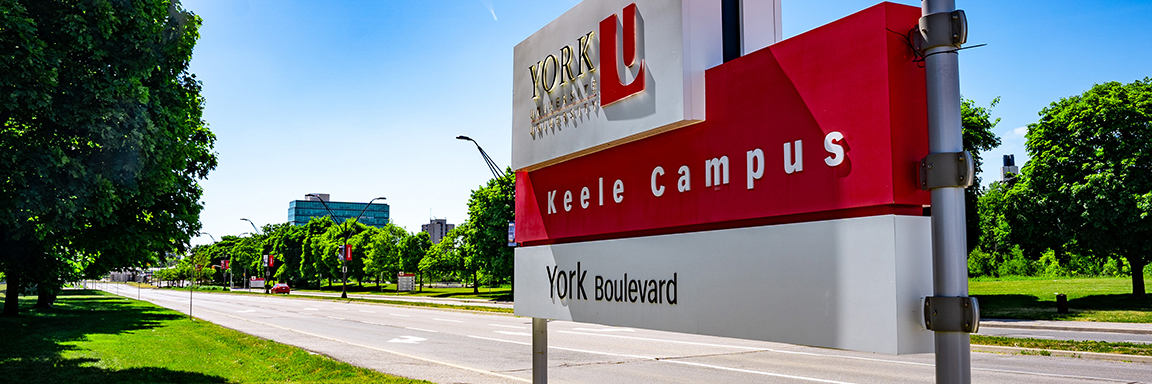Chantel Thompson, a student success and academic advisor at York University’s Lassonde School of Engineering, is this year’s recipient of the prestigious Lynda Tam Guiding Light & Legacy Award from the Advising Community of Practice and Peer Leader Community of Practice. The award recognizes Thompson’s unwavering commitment to students through her creativity and excellence in academic advising.

“Receiving the Lynda Tam Award is extremely meaningful to me,” said Thompson. “It means that the work that we do as advisors is important and impactful. It means that advisors like myself can be recognized for the incredible work that we do in supporting student success.”
The annual award was established to honour Lynda Tam, who served as the first assistant dean of students in the School of the Arts, Media, Performance & Design. By shaping student services, advising and peer mentoring programs at York U, Tam had a profound impact on student experience. She was also a founding co-chair of the Peer Leader Community of Practice. Through her creative and imaginative approach, Tam developed programs and initiatives that helped students excel and reach their academic, personal and professional goals. She exemplified student service excellence across the University and was a coach and a guiding light to students, staff and faculty.
Praised for her creativity and dedication, Thompson embodies many of Tam’s qualities. According to her nominators, she has significantly contributed to building an engaging and student-centred advising practice at Lassonde. She has been a driving force behind Lassonde’s innovative approach to University-wide pop-up advising fairs, incorporating activities such as trivia games, prizes and Faculty mascot appearances. The initiatives she has spearheaded, such as the student appreciation pancake breakfast and the new student handbook, have profoundly impacted students’ academic journeys.
Thompson’s nominators – all colleagues from Lassonde – feel strongly that this recognition is well deserved.
“Chantel continuously demonstrates creativity and imagination in her work,” said Caitlin Hicks, a student success and academic advisor at Lassonde. “Her passion and creativity are infectious, making her an inspiration to her colleagues and a valuable asset to our student community.”
Althea Smikle-Brown, manager of student advising at Lassonde, had this to say: “Chantel’s dedication to student success is evident in her proactive approach and her ability to think outside the box. Her empathetic approach and genuine care have positively impacted countless students.”
Lauren Hall, advising co-ordinator at Lassonde, added, “Chantel speaks up on behalf of students and her colleagues. She is committed to social justice and advocates for equality and inclusivity at every turn.”
As part of the award, artwork was commissioned by Paria Shahverdi, a master’s student from the School of the Arts, Media, Performance & Design. The piece, named Path to Light, was inspired by Lynda’s essence – her warmth, grace and nurturing spirit – and symbolizes the tranquility she embodied and sought. “This painting exemplifies the light, imagination and hope Lynda illuminated for those around her,” said Karen MacKinnon, a member of the selection committee.
The award and accompanying artwork were presented to Thompson in a surprise meeting that included her colleagues, members of the selection committee and her nominators – Smikle-Brown, Hicks and Hall.
Reflecting on the importance of the award, and her role in student outcomes, Thompson had this to say: “The concept of ‘student success’ is complex and nuanced – encompassing more than just academic success,” she said. “It’s about a student’s ability to put their mind to anything and see it through, regardless of the challenges and barriers they may encounter. This award shines a light on all those who contribute to transforming those complexities into all of the beautiful outcomes they may be.”
Read more about Tam’s legacy in YFile.





















